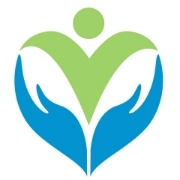About Job
WSU’s College of Health, Education and Human Services (CHEH) is accepting applications for adjunct teaching positions in Human Services and Social Work for Fall 2025 – Summer 2026 semesters. Individuals with academic and performance qualifications for the ranks of adjunct instructor through adjunct professor are encouraged to apply for positions in the following disciplines: Human Services, Social Work
Minimum Qualifications - Professional experience or academic qualifications covering subject matter taught within the College of Health, Education and Human Services.
- Applicant must possess an academic degree one level above the level at which they will teach, except in programs for terminal degrees or when equivalent experience is established. In terminal degree programs, adjunct faculty must possess the same level of degree.
- If teaching outside field of their advanced degree, adjuncts must have completed at least 18 graduate level credit hours of instruction in the field where they teach.
- At least 1 year professional or teaching experience unless otherwise noted in program specific qualifications. Candidates must have a commitment to the college’s mission of integrating diversity into all aspects of our programs.
Program specific requirements:
- Social Work: MSW and three years of practice experience
Teaching via didactics, clinical and/or simulation experiences – varies between in-person and on-line synchronous and asynchronous – 100%
Professional Field
 Social Work
Social Work Other Behavioral, Mental, or Healthcare Field
Other Behavioral, Mental, or Healthcare FieldPatient Focus
Diagnoses
Avoidant Personality Disorder
Issues
Racism, Diversity, and Tolerance
Age Groups
Preteens/Tweens (11-13)
Therapeutic Approach
Methodologies
ECT
Modalities
Individuals
Practice Specifics
Populations
Undergraduate/Graduate/Post Graduate
School
Settings
Home Health/In-home
Sign up for job alertsGet daily alerts for jobs relevant to you, sent to your inbox










